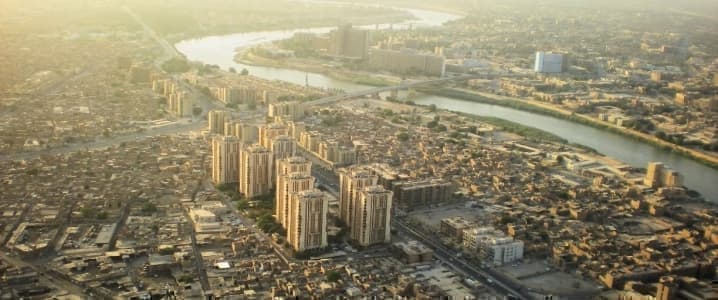The central Iraqi government said it had reached an agreement “in principle” with the government of semi-autonomous Kurdistan on the terms of sharing the oil production of the northern Iraqi province.
The Associated Press reports that the Kurdish government had agreed to deliver 250,000 bpd of crude oil to Baghdad by the start of 2020 and receive in return a bigger portion of the federal Iraqi budget.
According to Iraqi government officials who spoke to the AP, the oil-sharing deal is part of a broader agreement between Baghdad and Erbil that the two have been discussing for months amid growing protests in some parts of Iraq. Despite the protests, the two sides are making progress, the sources who wished to remain unnamed said. Some topics yet to be agreed on include revenue sharing, military cooperation, and perhaps the hottest issue, territory.
Kurdistan is home to some of the biggest oil fields in Iraq, around the city of Kirkuk. The fields around Kirkuk, as well as the city itself, were until the fall of 2017 under the control of the Kurdish government, although the area was not officially part of the Kurdistan region. However, after the ill-fated independence referendum, which led to a strong reaction from Baghdad, the central Iraqi authorities regained control of the oil fields that account for a sizeable portion of Iraq’s oil total.
Around 300,000 bpd of crude oil previously pumped and exported in the Kirkuk province to the Turkish port of Ceyhan were shut in when the Iraqi federal government moved in October 2017 to take control over the oil fields in Kirkuk from Kurdish forces after the semi-autonomous region held a referendum that Baghdad didn’t recognize.
Bilateral relations remained tense until the elections in Iraq, which brought into office Prime Minister Adel Abdul-Mahdi. The Kurdish government considers Abdul-Mahdi friendlier to their interests than his predecessor.
“The deal was struck because the Kurds see Adel as a partner they can trust,” one of the AP sources said. There may have been a sense of urgency on the part of the Kurds because of this, since the protests, which have so far claimed more than 300 lives, have escalated to calls for the resignation of the Prime Minister.
By Irina Slav for Oilprice.com
ADVERTISEMENT
More Top Reads From Oilprice.com:
- Oil Bounces Back On New Round Of OPEC Rumors
- 99 Oil Rigs Gone And Counting: Rig Count Falls Again
- Putin Calls U.S. Shale “Barbaric”



















6-7 million barrels a day (mbd) by 2023/2024 and expand oil export infrastructure.
Iraq’s expansion of its oil production and exports goes hand in hand with the expansion of its pipelines and oil-export terminals on the Gulf. To achieve this goal, Iraq needs a permanent and peaceful political accommodation with the regional government of Iraqi Kurdistan (RGK). The agreement reached in principle between the central Iraqi government and the RGK for sharing the oil production of the northern Iraqi province is a step in the right direction.
For Iraq, the only available oil-export pipeline that bypasses the Strait of Hormuz is the Iraqi-Turkish pipeline (ITP) from Kirkuk to Ceyhan on the Turkish Mediterranean coast with capacity of 1.6 mbd but it is currently out of action. Therefore, Iraq should move with the utmost urgency to rehabilitate the ITP in agreement with the RGK.
Iraq should also simultaneously give top priority to extending the Iraq strategic oil pipeline to the Jordanian port of Aqaba on the Red Sea, possibly with similar capacity to the ITP.
Iraq should also endeavour to expand the export-capacity of its terminals on the gulf from the current 4 mbd to 6 mbd.
Moreover, Iraq should help rehabilitate the Kirkuk to Banias oil pipeline on Syria’s Mediterranean coast but this has to wait the end of the civil war in Syria.
Dr Mamdouh G Salameh
International Oil Economist
Visiting Professor of Energy Economics at ESCP Europe Business School, London